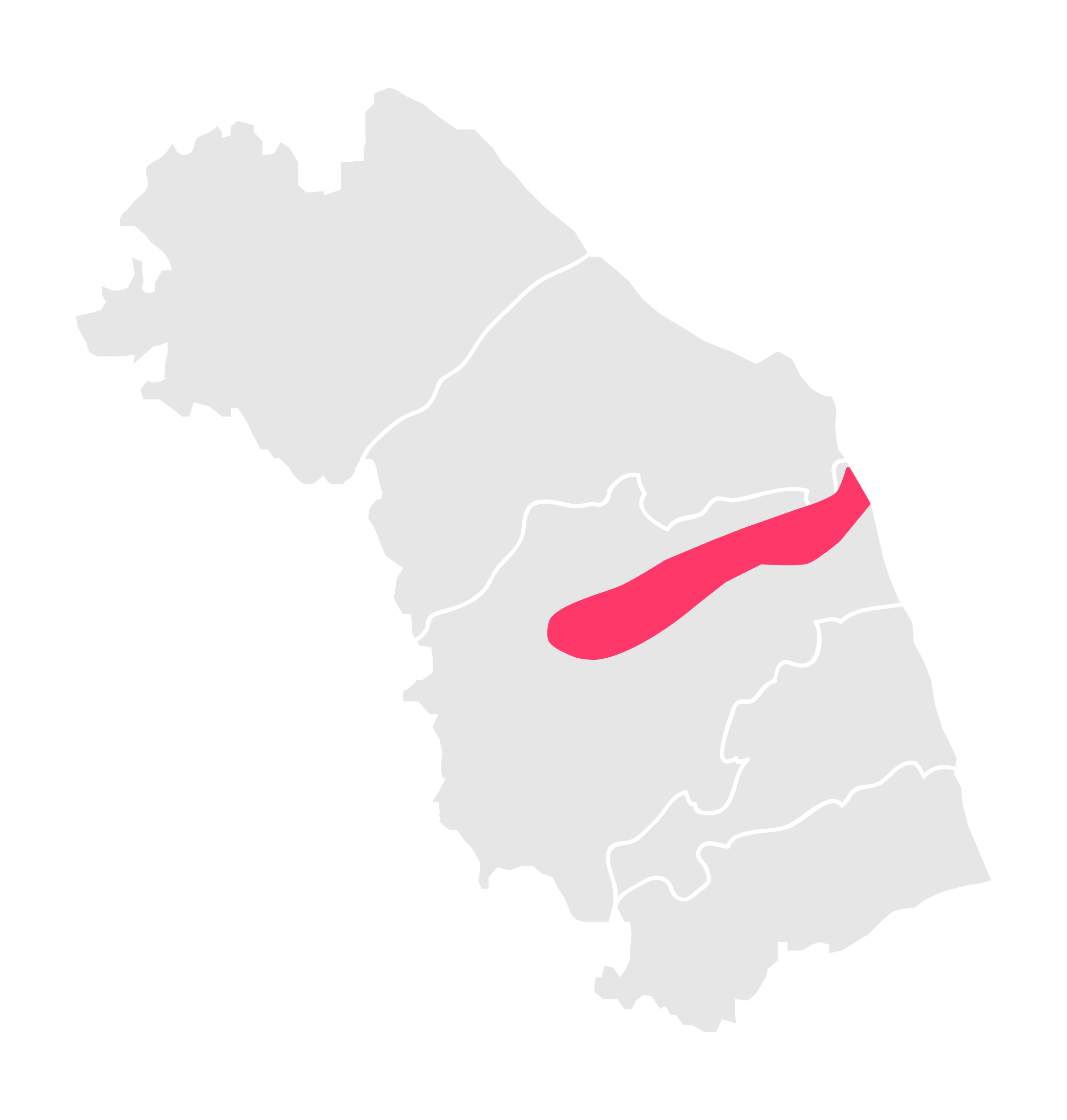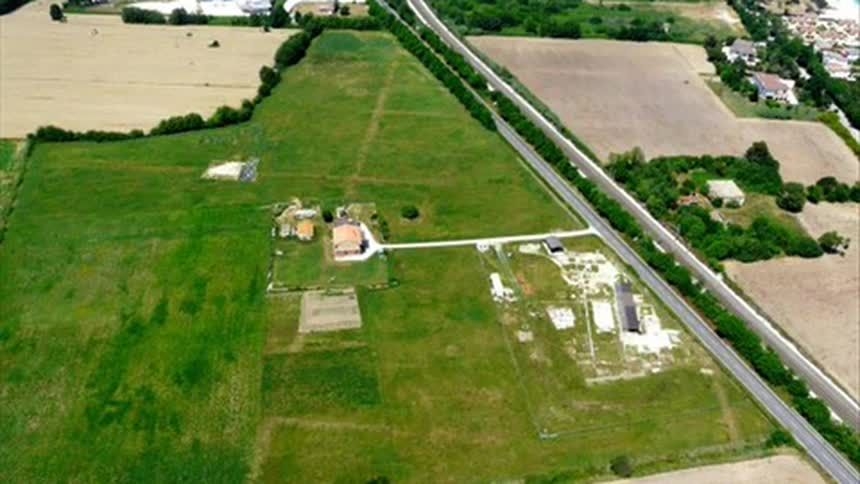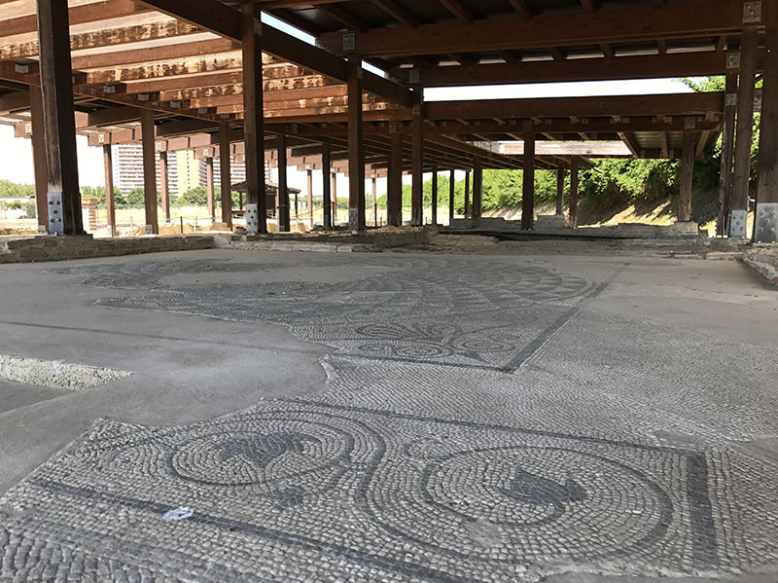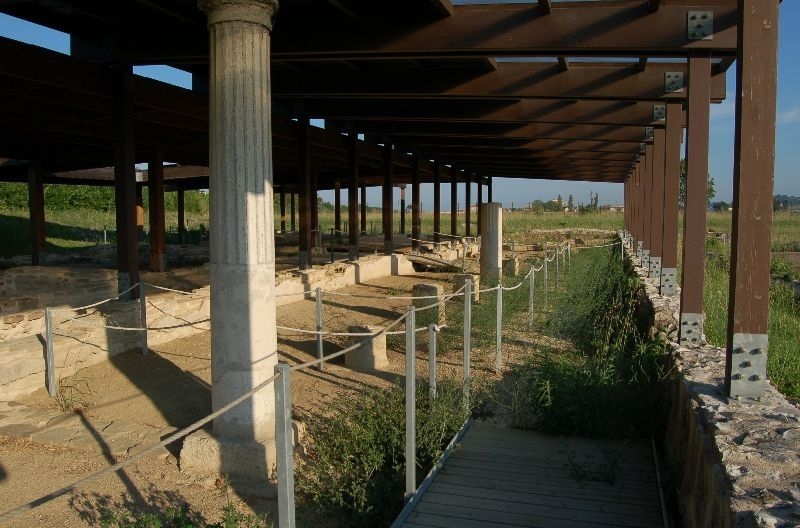
The Roman city of Potentia was born as a colony in 184 BC near the mouth of the river Potenza, an important means of communication between the coast and the interior, on the road that was to become Salaria Picena, to secure donations of land to the veterans of the Punic wars and, at the same time, to guarantee Rome control of a very important strategic area on the Adriatic, whose trade was already well developed in the pre-Roman Age. The archaeological surveys carried out since the 1980s have made it possible to identify the remains of the city in S. Maria, the current site of the archaeological area, a few hundred meters west of the coast and about 2 kilometers south of the center of city of Porto Recanati. The excavations have highlighted that the colony was founded in an area already occupied in the pre-Roman period, between 5th and 3rd centuries BC. Among the buildings identified and now visible, notable is the large republican temple on a high podium with a colonnade porch, probably dedicated to Jupiter. The building, of which remain part of the colonnade and portions of the perimeter walls of the porch and cell, faced out on one of the city's main streets. The shops to the west of the Temple, which remained in use until late antiquity, can also be traced back to the Republican Age. In the Imperial Age, the area underwent major changes: at this time the colony, now economically expanding and with direct relations with Rome, became a fundamental center within Salaria Picena. To this period are attributed the remains of a domus built on older structures around the 1st century AD, and which remained in use until the 5th century AD. Of the building there remain frescoed portions of the front and some rooms with mosaic pavements. In addition to the aforementioned evidence, the archaeological area is characterized by the presence of a large necropolis in the northern and western parts of the city, where some funerary monuments bear witness to the riches achieved by the most wealthy families through maritime trade. After the widespread crisis in the empire during the 3rd century AD, the city saw an economic recovery that coincided with a parallel resumption of construction activity, which lasted until at least the 5th century, when the city became a bishopric. From the following century, however, following the barbarian invasions and the end of sea trade, the city was subject to a progressive depopulation leading to its definitive abandonment.
We have found no place to eat in the vicinity
We have found no place to sleep in the vicinity
Da Pesaro a San Benedetto del Tronto, lungo la costa Adriatica, alla scoperta dei principali porti e approdi frequentati dall’età del bronzo a oggi. Alla foce di fiumi e torrenti, entro piccole baie, promontori e grandi insenature, si svilupparono nell’antichità porti, porti canale, empori o semplici approdi. Questi scali furono il fulcro di una fitta rete di commerci marittimi che hanno dato vita a un intenso dialogo tra oriente e occidente, testimoniato dai ritrovamenti di reperti provenienti da tutto il bacino del Mediterraneo.
Nelle zone di confine dell’entroterra marchigiano i principi umbri di Camerino vivevano a contatto con numerosi villaggi, anch’essi retti da principi guerrieri piceni. I pregevoli corredi delle necropoli, risalenti alla fine dell’VIII - inizi VI sec. a.C., documentano i fitti scambi con l’oriente greco e con l’Etruria e attestano il ruolo cruciale di queste popolazioni nei traffici mercantili tra Adriatico e Appennino, che essi controllavano e da cui traevano le loro ricchezze.

|
Address | Via Santa Maria in Potenza Porto Recanati |

|
Phone Number | (+39) 0717599767 |

|
Opening Time | Su prenotazione |

|
Visit Time | 45 min |

|
Entrance Fee | Gratuito |

|
Reservation Required | yes |

|
Viabilities | Salaria Gallica |

|
Bookshop | no |

|
Free Guided Tour | yes |

|
Guided Tour | no |

|
Parking | yes |

|
Disabled Accessibility | no |

|
Audioguide | no |

|
Didactic Rooms | no |

|
Conference room | no |

|
English language | no |

|
Public Transport | no |

|
Family Services | no |


